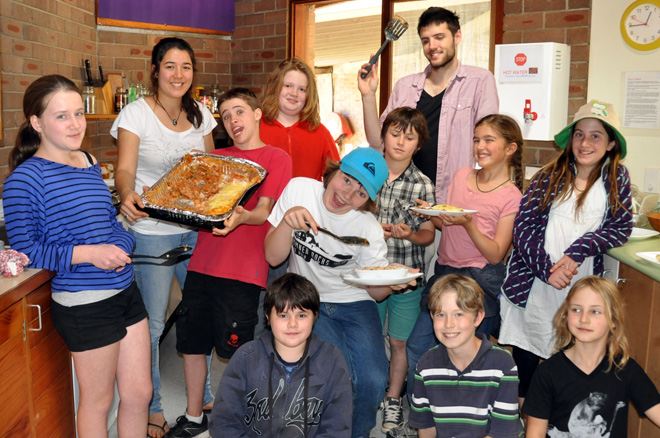Latest news
Reflections of an Intern in Group 3
I particularly reviewed my learning against the Professional Standards for Teachers against which my development as a teacher is assessed. I discovered that not only were many of the requirements of the Standards satisfied, but that they were satisfied at a deeper level than would have been available had I simply engaged in delivering what could be described as ‘regular lessons’. Let me briefly explain by reference to one of the standards.
Standard 1 addresses the need to ‘Know the students and how they learn’. Regular lessons provide a forum for getting to know your students but I realised how much richer was the forum provided by activities such as the whole school meeting, Tinkering Day, Choice afternoon and inquiry based learning. These activities allowed for being with the students, observing them in play and discovery, interacting with them and sharing knowledge and information at their level.
I also came to realise how much more powerful it is to participate together with and guide students to their own understanding of their world through such open ended activities than to communicate, even powerfully, your understanding.
Thank you to Kris for this insight into your reflection.

We took this thoughtful pondering moment and decided to ask the children in Group 3 a couple of questions:
- How do teachers teach?
- What do they do to support your learning?
We first of all clarified and defined who a teacher is, and we decided it’s not just people in a classroom but in all walks of our lives, through sport, music, parents, siblings and hobbies we do. They all worked individually to come up with their own personal list of how the teachers in their lives help them. The list, as you can see, is quite extensive!!
- encourage me which helps because I feel like I can do more
- show us stuff
- explain the complex so it’s not as hard
- tell us new things to improve our skills.
- give me tricks to help my learning
- answer our questions in detail
- allow for repetition
- give us time
- allow us to practise
- provide experiences and opportunities
- teach us about ourselves
- make up games
- make things fun and that makes us want to learn
- ask questions
- gives us examples of everyday life
- give information to us
- work one-on-one with us
- talk with us
- create rules for us, which we might not always like
- let us do things for ourselves
As a result of this the children were also reflecting upon the way in which they learn!
- friends always make things simple and always help
- you learn naturally by living
- I feel comfortable around my teachers
I feel truly blessed to be part of the discussions that take place within this learning space!
- Suz & Kris
Term Dates 2025
- Term 1: Tues 4 February to Fri 11 April
- Term 2: Wed 30 April to Fri 27 June
- Term 3: Wed 23 July to Fri 26 Sep
- Term 4: Wed 15 Oct to Thu 18 Dec
Contact us
127 Coolowie Rd,
Terrey Hills NSW 2084
Find us on Google Maps
Primary: +61 2 9450 0738
Preschool: +61 2 9486 3018
Email Kinma

